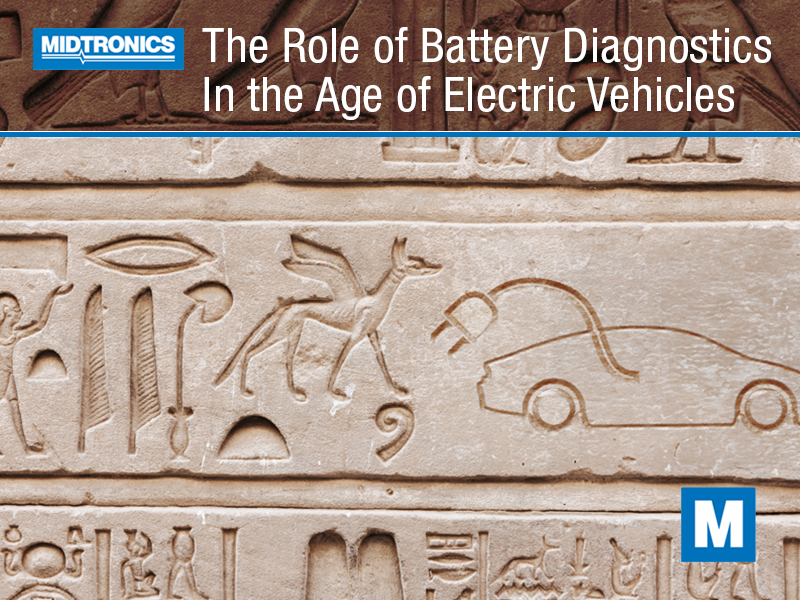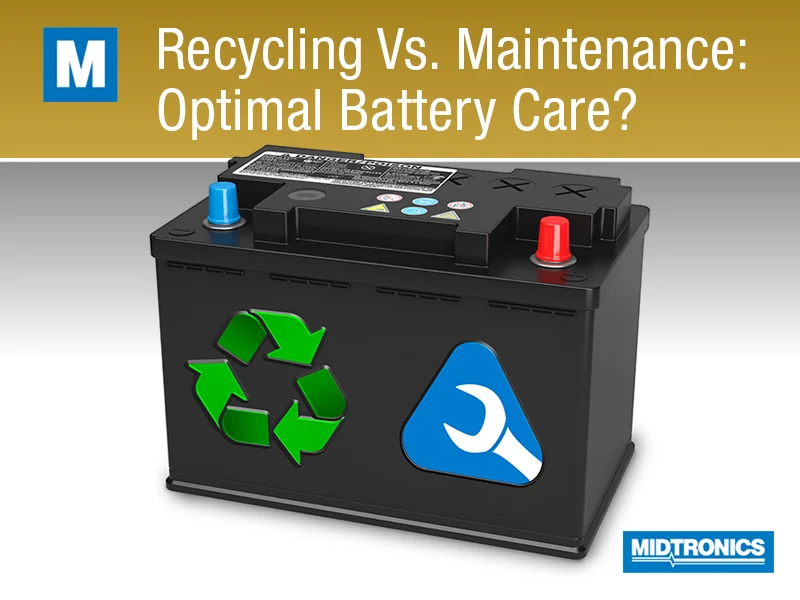The vehicle repair industry is a dynamic and ever-evolving field, with technology driving much of the change. One significant area of advancement is battery diagnostics, and it factors into every area of vehicle maintenance and service. Annually, dead batteries are the most prevalent reason for roadside assistance calls, and problems drivers experience are exacerbated by vehicles that contain a growing number of power-hungry accessories.
One of the best ways of earning customers’ vehicle service business is by going above and beyond what’s expected, and testing their batteries is a great way to demonstrate value. Here are seven ways aftermarket repair shops and facilities can benefit from battery diagnostics.
1. Improved Customer Satisfaction
Nothing frustrates a customer more than having a repeat problem with their vehicle or experiencing a dead battery shortly after their car was in the shop. It’s not only annoying, but it causes them to lose faith in their car’s reliability. A battery test is fast and simple, and it can do wonders in promoting customer satisfaction.
Battery diagnostics provide accurate and swift results, enabling mechanics to quickly identify and solve battery-related issues. This leads to improved customer satisfaction and loyalty, which everyone agrees is good for business.
2. Increased Revenue
With advanced battery diagnostic tools at their disposal, aftermarket repair shops can offer additional services such as preventative maintenance and battery health checks. A complimentary battery test without even being asked is one thing, but it’s also great for customers who only drop in for a battery check.
These services add value for the customer and create a new revenue stream for the business. The service department structure is all about opening a repair order, which provides an opportunity to sell more parts and labor, whether that’s only a battery or additional services like brakes, oil leak repairs, and more.
3. Enhanced Reputation
Typically, a quick lube shop doesn’t make its name on expert service but on being fast and convenient. However, many drivers want more than that. Whenever someone is interested in ensuring their vehicle health for peace of mind, going the extra mile with professional-grade equipment will make that shop stand out in a crowded market. That’s the case with Midtronics battery diagnostic equipment.
By adopting cutting-edge technology, repair shops position themselves as leaders in the auto industry. This not only attracts tech-savvy customers but also enhances the shop’s reputation among competitors.
4. Reduced Warranty Returns
While selling batteries is a source of income for aftermarket repair shops, warranty replacements can be a bother. Just because a battery is discharged doesn’t mean it’s failed, and if it’s returned to the manufacturer, the warranty replacement can be declined, leaving the shop on the hook for the cost. It can be prevented by an in-vehicle or bench test prior to giving the customer credit or a replacement.
Accurate diagnostics can pinpoint faulty batteries as well as identify those that are still in serviceable condition but discharged, reducing the number of warranty returns that get charged back. This saves both time and money for the repair shop.
5. Streamlined Operations
One of the most common objections from technicians and front-desk service personnel is that performing battery tests takes too much time on an already busy day. But the argument falls flat when it begins to affect customer loyalty and revenue. Plus, with the average test taking less than 60 seconds from start to finish, it’s a step that fits easily into either the front end or back end of the shop without a problem.
Battery diagnostics tools are easy to use and integrate into existing workflows. This streamlines operations, allowing mechanics to service more vehicles in less time.
6. Data-Driven Decision Making
Today’s vehicles are extremely complex, and a pass-or-fail voltage or load test from years ago is no longer sufficient to diagnose a failing battery. With those results, it’s very possible that a faulty battery could slip through the cracks and leave a driver stranded.
Modern diagnostic tools provide detailed data about a battery’s health. This data aids in decision-making, providing a clear picture of when a battery needs to be replaced or serviced. Along with the capacity to check for a battery’s starting capacity, it can also identify its ability to recharge quickly as well as charging system issues. Conductance Profiling, Dynamic Charge Acceptance, and MDX-AI are Midtronics’ technologies that use data for more accuracy, catching more bad batteries in less time.
7. Future-Proofing Your Business
As electric vehicles become more prevalent, the demand for advanced battery diagnostics will increase. Although it’s a significant investment for aftermarket repair shops, it’s the way the industry is going. Eventually, it could put some facilities out of business if they aren’t prepared to work on EVs, whether it’s for high-voltage batteries or 12-volt SPC batteries.
By investing in these tools now, repair shops can stay ahead of the curve and be ready to service the vehicles of the future.
Battery diagnostics is no longer just a nice-to-have—it’s an essential part of any modern repair shop. By embracing this technology, aftermarket repair shops and facilities can significantly enhance their service offering, improve customer satisfaction, and increase profitability.
Remember, the future of automotive repair is here, and it’s powered by advanced battery diagnostics from Midtronics. Learn more about how our solutions can benefit your business.




